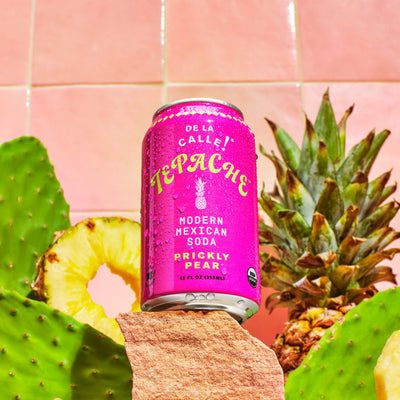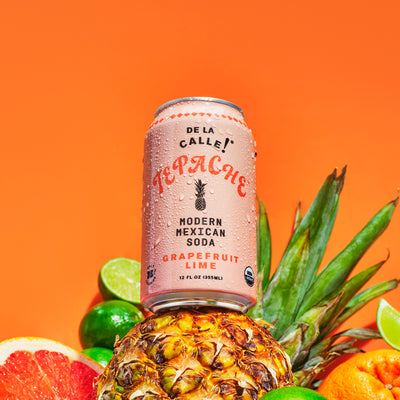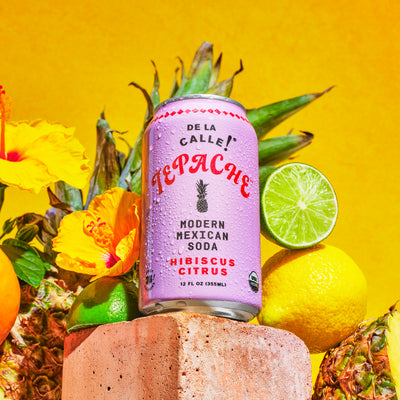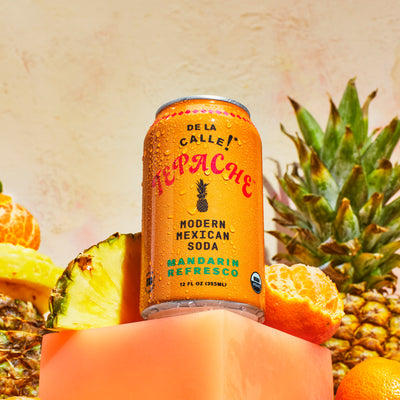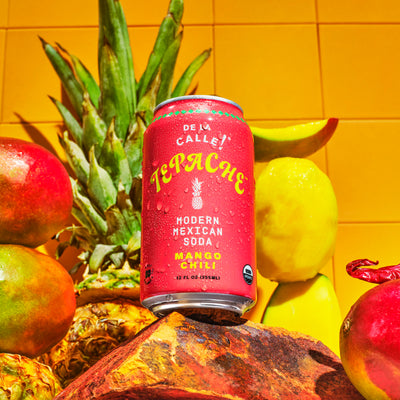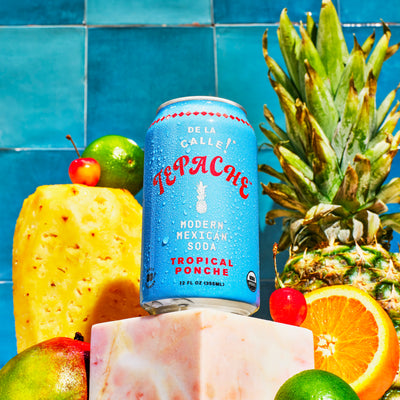Fermented Fruit: Is It Good For You?

Have you seen more fermented foods and drinks in the grocery store aisles recently? As one of the newest trends in the health food world, there’s been a lot of talk about fermentation. But what about fermented fruits specifically?
This article will provide you with an overview of fermentation. Then, we’ll take a close look at the health benefits of fermented fruits and answer some frequently asked questions regarding fruit fermentation.
What Is Fermentation?
Fermentation is a natural anaerobic process which means that it occurs without oxygen. During fermentation, microorganisms such as bacteria and yeast break food components such as sugars and glucose into products such as acids, gases, or alcohol. For this reason, fermentation gives foods a tasty, acidic flavor.
There’s a whole world of foods that you can ferment. Believe it or not, you can ferment everything from vegetables, fruits, cereals, dairy, meat, fish, eggs, legumes, nuts, and seeds. Without knowing, you might have had fermented foods if you’ve ever had sauerkraut, kimchi, sourdough bread, beer, and sugar.
Health Benefits of Fermented Fruit
Now that you know a bit more about the fermentation process, let’s dive into the health benefits of fermented fruits.
Probiotics
Fermented fruits are incredibly rich in probiotics. Although we’re used to thinking of bacteria as bad and harmful, there are actually thousands of types of healthy, beneficial bacteria that your body needs to function properly. Probiotics are a combination of good bacteria and yeasts that live naturally in your body and are found in many fermented foods.
When you’re sick, the bacterial balance in your body is disrupted, and there are more bad bacteria than good. Probiotics work by returning this balance to a healthy state. You can think of probiotics as the bacteria that help your body stay in “neutral.” Probiotics can also help you digest food, create vitamins, and break down and absorb medications.
Vitamins
Fermented fruit can also increase the levels of vitamin A, B, C, and K in your body and make vitamins and minerals more readily available for absorption.
Vitamin A is a nutrient that is an important part of growth, cell division, reproduction, and immunity. It can also act as an antioxidant. Antioxidants protect your cells against the effects of free radicals, which may play a role in diseases such as cancer and heart disease.
Vitamin B is another very important nutrient that can affect your energy levels, brain function, and cell metabolism. It can also promote a healthy appetite, brain function, and nerve function.
You might have heard vitamin C referred to as the “citrus vitamin” because it is commonly found in citrus fruits as well as berries and green vegetables. Your body needs vitamin C to form blood vessels, cartilage, muscle, and collagen in bones.
Although it’s not normally used as a dietary supplement, vitamin K is also essential to proper bodily functioning. Vitamin K helps the blood clot and prevents excessive bleeding.
Immune Functions
Although it might sound odd, a large portion of your immune system is housed in your gut.
Consuming probiotic-rich foods can help support the mucosa. The mucosa is the lining of your gut that acts as a natural barrier between the gut and the bloodstream. When you ingest bad bacteria through food or drinks, your mucose protests you by ensuring those bad bacteria can’t get through your gut.
The probiotics in fermented fruits can boost this barrier, making it harder for you to develop certain bacterial infections and illnesses.
Improved Mood
There is a strong link between your gut and your brain. The technical name for this link is the hypothalamic-pituitary-adrenal axis. Basically, this link means that the gut is lined with neurons that affect and influence our emotions and feelings.
For example, serotonin, which is sometimes referred to as the “happy hormone,” is made in the gut. Given that the probiotics found in fermented fruits can make your gut healthier, they might also make your mind healthier.
Improved Digestion
Do you sometimes struggle with digestive issues? If so, fermented fruits may be able to help. Given that fermentation naturally breaks down some of the sugars and starches in foods, they are easier to digest.
Frequently Asked Questions About Fermented Fruit
Fermented fruits are an excellent source of probiotics that can boost your immune and digestive systems. That said, you might still have some questions about the fermentation process and fermented fruits specifically.
This section will address some of the frequently asked questions about fermented fruits.
Is Fermented Fruit Safe?
Yes, fermented fruits are safe to eat. Several foods and beverages are made from fermented fruits. For example, tepache, a traditional Mexican beverage, is made from fermented pineapple rinds.
If you are fermenting your own fruit at home, it is important to follow the directions for fermentation closely and use clean jars and tools to make sure the fruit is safe to eat.
What Does Fermented Fruit Taste Like?
Different kinds of fermented fruit understandably taste different. That said, fermentation does usually give foods and beverages a slightly acidic, tangy taste. Depending on the fermentation method you use, fermented fruit can taste salty and slightly sour or sweeter, and more citrusy.
How Long Does Fermented Fruit Last?
Fermented fruits last much shorter than fermented veggies. If your fermented fruit or fermented fruit beverages look moldy or smell bad, throw them out.
Usually, fermented fruits last a few weeks, whereas fermented vegetables can last up to a year in some instances.
Is It Difficult To Make Fermented Fruit at Home?
No, it’s not difficult to make fermented fruit at home. All you need to do is closely follow the fermentation instructions and experiment with different techniques until you find the perfect recipe for your needs. Some tips for at-home fruit fermentation include:
- Pay attention to the fruits you use. For the best results, use organic fruit, filtered water, and non-iodized fruit for fermentation.
- Remember that fruit ferments quickly. Check on your fermenting fruit every 24-48 hours. It’s very easy for fermenting fruit to pass the threshold and turn into alcohol.
- Make small batches of fermented fruit. Given that it goes bad relatively quickly, it is a good idea to only make a small amount of fermented fruit at once.
- Turn your fermented fruit into beverages. Although fermented fruit on its own can make a delicious topping for yogurt or ice cream, it can also make a delicious base for drinks such as tepache.
- Have the correct tools. To ferment fruit at home, you may need mason jars, fermentation weights, jar lids, a kitchen scale, bowls, measuring cups, and spoons.
Conclusion
The short answer to the question “are fermented fruits good for you?” is yes, very good! Fermented fruits have several health benefits. They can give your immune system a boost, provide you with vitamins and nutrients, improve your mood and make it easier to digest foods.
Fermented fruit is absolutely safe to eat. If you’re making it at home, you just need to make sure to follow the fermentation directions closely and clean all of your fermentation tools. Although there is not one specific taste for fermented fruits, we promise that they all taste delicious!
Sources:
The role of the hypothalamic-pituitary-adrenal axis in neuroendocrine responses to stress | NCBI


